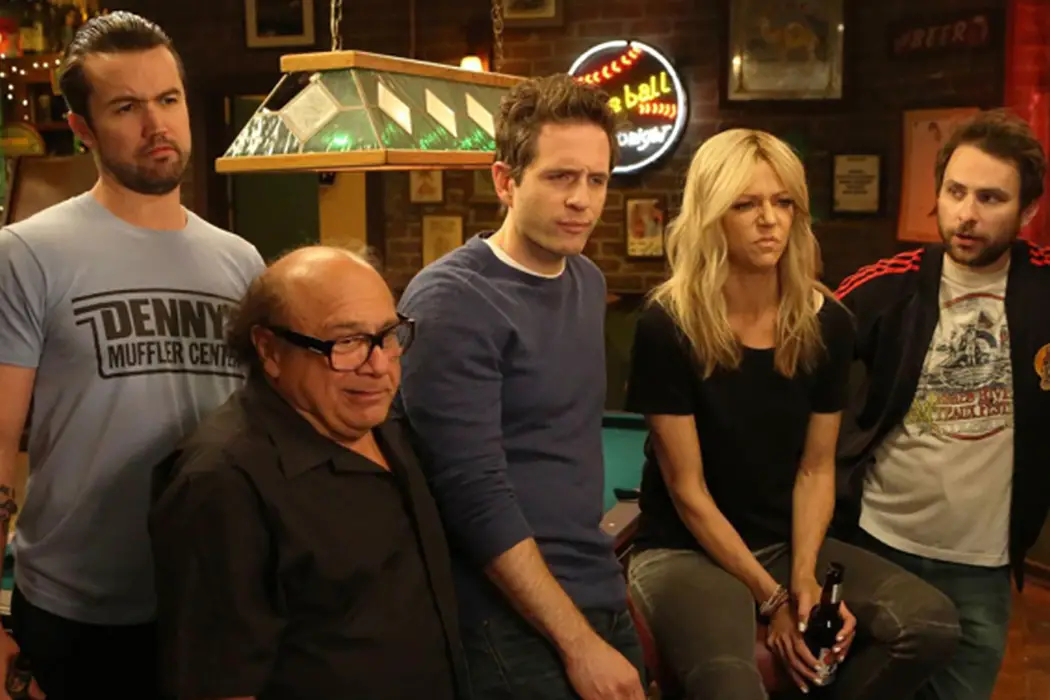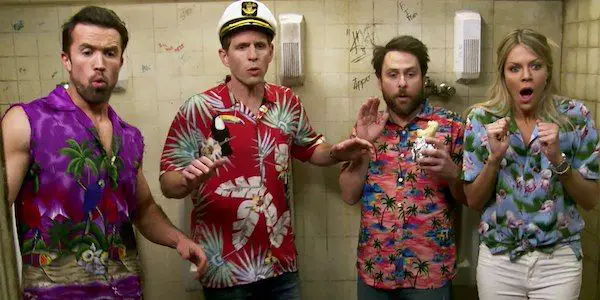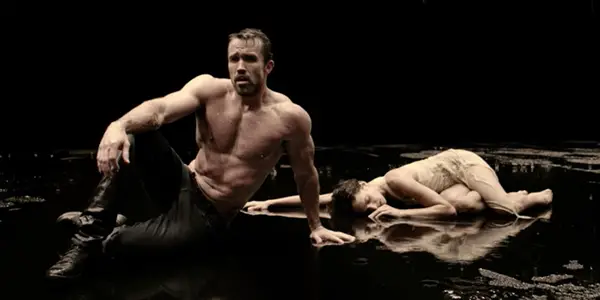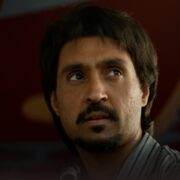IT’S ALWAYS SUNNY IN PHILADELPHIA SEASON 13: Cracks Begin To Show For Legendary Series

Tom is a recent graduate based in the UK, who…
It’s Always Sunny in Philadelphia is a classic comedy for a reason – but can it stay a classic comedy if it stops being a comedy?
How does one judge good comedy – is it by the power of its filmmaking and acting; its particular message or theme; the cultural impact it has – or by the amount of times you laugh at it?
This has never been a problem for It’s Always Sunny in Philadelphia before – the classic comedy series about friends who own a bar has always managed to deftly underline an incredible and eclectic comedy style with subtle and smart commentary on a variety of world events.
Unfortunately, Season 13 loses its balance and falls far from the comedy that made it great in the first place, while stepping up its political points in such a mishandled way that they overshadow the show itself. These two changes aren’t necessarily linked, but they’re a two-step knockout blow for the greatest comedy show on TV.
The season isn’t bad, per se, but with It’s Always Sunny’s impeccable track record, even the most tentative of missteps constitutes a massive fall in quality.
Losing Their Harmony
It’s Always Sunny’s power undeniably lies in the chemistry between its characters, affectionately named “the gang”. Each is so uniquely defined and acted, that each situation to befall them causes them to cooperate or conflict in hilarious and wild ways – the core of the series’ comedy are these chemical reactions. It goes without saying, therefore, that to remove one or more of the characters is to undermine the foundations of the show.
The likely absence of Dennis (Glenn Howerton) was well publicized during the series’ production, both due to his leading role in A.P. Bio and certain events at the end of Season 12, and fans were ecstatic to hear he’d still be present – albeit in a reduced role – in the series. However, rather than find a way to incorporate his absence into the story, which would have been supremely easy due to the previous finale effectively writing him out, showrunner and star Rob McElhenney and the writers made the curious decision not to do anything with this information. As a result, Dennis is inexplicably missing for half the episodes, an absence that isn’t mentioned at all.
However, his disappearing act is indicative of a larger phenomenon, and cast members drop in and out of the series like politicians drop in and out of the Trump administration. “The Gang Beats Boggs: Ladies Reboot” only has Dee (Kaitlin Olson) of the main cast; “Mac Finds His Pride” focuses on Mac (McElhenney) and Frank (Danny DeVito), and “Charlie’s Home Alone” obviously only stars Charlie (Charlie Day).
Only five of the ten episodes star the entire cast (which are, rather tellingly, by far the better episodes, including “The Gang Gets New Wheels” and “Time’s Up for the Gang”). In comparison, eighteen of the twenty episodes of Seasons 12 and 13 starred the gang in its entirety.

Since the season’s focus on individuals or non-gang casts strips the show of the harmony between the five friends, it loses the core of its comedy. Most episodes are left to the acting strength of individuals or incomplete groups, and they just don’t resonate and juxtapose in the hilarious ways that the entire gang did together. Some of these episodes have laughable moments, but never reach the madcap insanity that has come to be expected of the show.
Where is Philadelphia?
As well as a reduced cast, the series takes an unexpectedly low-budget approach to its locations, which is surprising given that the setting of the show is so important that it’s literally in the name.
Philadelphia’s streets, bars and boats normally play host to the gang’s antics, and its inhabitants are the comedic and narrative foible to these endeavors. A standard episode will consist of different groupings of characters marching around various locations in the city, or congregating in Paddy’s Pub, their bar. The comedic momentum of each episode is intimately tied to its geographical momentum.

It’s bizarre, then, that only two of the episodes take place in multiple locations around the city, and five of them take place in the exact same room. As well as cutting out the character of Philadelphia from the show and limiting the characters in their aforementioned momentums, this limits the episodes’ comedy to the interactions between characters – which, as we’ve already established, suffers from the limited cast.
That’s not to say these episodes are all bad, or even unfunny, but many of them seem artificially shackled to – keep the budget low? Distract from the absence of actors? Engage in irritating gimmicks like a clip show format? (Admittedly, “The Gang does a Clip Show” masterfully subverts the trope halfway through the episode, but that doesn’t change the fact that the first half of the episode was a straight-up clip show).
Do Politics Have a Place?
While It’s Always Sunny has always had a political message, it’s never been overt – previous episodes like “The Gang Spies Like U.S.” or “Hero or Hate Crime” manage to impart their morals without ever making it explicit, and even the more on-the-nose episodes such as “The Gang Turns Black” have managed to stop the political activism from being the main point of the episode.
Fans of the show were quick to tie the season’s lackluster comedy to its fierce new political stance. Episodes like “The Gang Solves the Bathroom Problem” and “Time’s Up for the Gang” don’t just involve contemporary political debates, but they’re actively about them (as the titles suggest) in a much stronger way than before. And while some of the weakest episodes are political, the two aforementioned debate-focused episodes are the strongest episodes of the series. There’s no indication that, as some want to believe, “liberal politics ruined It’s Always Sunny”.
The implementation of explicit politics to a show in which they have previously been implicit does shake the show, however, as there simply isn’t the framework or structure to support these messages whilst retaining the show’s comedy. The characters don’t have enough depth to explore topics in the nuanced fashion that they’re asked to. As an example, “The Gang Beats Boggs: Ladies Reboot” is an all-female revision of a classic It’s Always Sunny episode, and it works well to comment on and critique aspects of all-female reboots of media properties. However, with the exception of Dee, none of the supporting female characters have been characterized enough in the past for this episode to work as a comedy.
To finally re-iterate the initial question of this review: is it right to judge a comedy show by the amount of times one laughs during it? This horribly subjective and simplified metric would suggest Season 13 of It’s Always Sunny is bad, but some of the strongest moments of the series are the character moments, which is new territory for the show.

In particular, Mac has some fantastic character moments, following on from him coming out at the end of Season 12, in particular the phenomenal end to finale “Mac Finds his Pride”. This end isn’t just the most intimate piece of characterization in the whole of It’s Always Sunny by far, but arguably one of the most important LGBT+ moments in recent TV. And, unlike the rather similar end to “The High School Reunion Part 2” in Season 7, it isn’t played for a joke in any way – it’s pure unadulterated emotion, and it’s incredibly powerful.
However, it’s not funny, and this speaks to a larger trend in the series – for the first time in the show’s history, the message is more important than the comedy. Important political messages are being dropped left and right, but the show’s DNA just doesn’t facilitate such profound ideas. As a result, the jokes are fewer and weaker, and often they’re ignored completely in favour of the themes or messages. There are still some jokes, but the unique comedic style of It’s Always Sunny just isn’t there as a result.
It’s Always Sunny in Philadelphia Season 13: Conclusion
It’s great that showrunner McElhenney chose to make the politics of the show more apparent – there was a burgeoning part of the fanbase that thought It’s Always Sunny was actually right-wing propaganda, for some inexplicable reason – and the sharp minds of the writers manage to find ingenious ways to explore issues that many other shows struggle to face.
However, the show needed its old classic comedy as a fitting counterpoint, and it just isn’t there. Depending on who you ask this is a damning indictment, or a sign that the show has grown out of its old shackles. If the show was less funny because of the increased presence of politics, that’d be one thing, but the show isn’t funny despite the witty viewpoints and messages – the absconding (and, let’s be honest, tired) cast, limited storylines and reduced locations all condemn it in that regard.
To criticize the series for its reduced cast, locations, and budget seems like nitpicking – surely changing these minor details shouldn’t impact on the show as a whole? However, as a result of a thousand cuts the show loses its spirit, the unique sense of outrageous hilariousness that made the show a comedy classic in the first place.
Judging by its comedy, Season 13 is by a significant margin the weakest season of It’s Always Sunny . However, as a way to explore and explain contemporary political topics, Season 13 is more important than it’s ever been. Depending on what each individual viewer deems the most important aspect of the show, this season is one of the best or by far the worst.
Does It’s Always Sunny in Philadelphia changing its political focus ruin the show, or just pave the way for a new style of comedy?
Does content like this matter to you?
Become a Member and support film journalism. Unlock access to all of Film Inquiry`s great articles. Join a community of like-minded readers who are passionate about cinema - get access to our private members Network, give back to independent filmmakers, and more.
Tom is a recent graduate based in the UK, who writes about films and games, and makes a few of his own. If he's not watching a film, playing a game or writing a script - don't worry! - he's probably just gone to make a cup of tea. He's never far from a screen.













